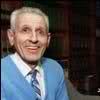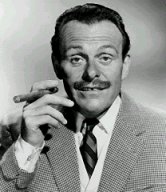- Welcome to Cook'd and Bomb'd.
-
 Taskmaster s17
by BritishHobo
Taskmaster s17
by BritishHobo
[Today at 05:39:51 PM] -
 Christianity
by Dr Rock
Christianity
by Dr Rock
[Today at 05:39:45 PM] -
 what's the worst TV comedy...
by Glebe
what's the worst TV comedy...
by Glebe
[Today at 05:35:39 PM] -
 Lucy Beaumont and Sam Campbell...
by selectivememory
Lucy Beaumont and Sam Campbell...
by selectivememory
[Today at 05:35:08 PM] -
 Cheese Rolling
by The Mollusk
Cheese Rolling
by The Mollusk
[Today at 05:31:34 PM] -
 Snooker 23/24
by Found Wound Round
Snooker 23/24
by Found Wound Round
[Today at 05:29:41 PM] -
 The King, King Charles, has...
by Blumf
The King, King Charles, has...
by Blumf
[Today at 05:26:57 PM] -
 Childish pathetic stuff you...
by Gurke and Hare
Childish pathetic stuff you...
by Gurke and Hare
[Today at 05:26:40 PM] -
 The Beatles are fucking good....
by studpuppet
The Beatles are fucking good....
by studpuppet
[Today at 05:25:38 PM] -
 Who would want to own this?...
by Gurke and Hare
Who would want to own this?...
by Gurke and Hare
[Today at 05:23:51 PM]
Members
 Total Members: 17,818
Total Members: 17,818 Latest: JesusHCorbett
Latest: JesusHCorbett
Stats
 Total Posts: 5,574,963
Total Posts: 5,574,963 Total Topics: 106,610
Total Topics: 106,610 Online Today: 716
Online Today: 716 Online Ever: 3,311
Online Ever: 3,311- (July 08, 2021, 03:14:41 AM)
Users Online
 Users: 96
Users: 96 Guests: 403
Guests: 403 Total: 499
Total: 499 candles
candles A Hat Like That
A Hat Like That Ruben Remus
Ruben Remus Lordofthefiles
Lordofthefiles rjd2
rjd2 Stonefish
Stonefish Mx Wrongs
Mx Wrongs Wayman C. McCreery
Wayman C. McCreery thevoola
thevoola Midas
Midas druss
druss Dr Rock
Dr Rock MjjW
MjjW Chairman Yang
Chairman Yang BritishHobo
BritishHobo twosclues
twosclues burst_arm
burst_arm Fishfinger
Fishfinger Poobum
Poobum Magnum Valentino
Magnum Valentino Tikwid
Tikwid Keebleman
Keebleman convulsivespace
convulsivespace timahall
timahall Theotherside
Theotherside paddy72
paddy72 checkoutgirl
checkoutgirl Red Lantern
Red Lantern Marbles
Marbles Hans Resist
Hans Resist lankyguy95
lankyguy95 Egyptian Feast
Egyptian Feast Eltho Jo
Eltho Jo Deanjam
Deanjam JaDanketies
JaDanketies Brian Dunklefun
Brian Dunklefun Phoenix Lazarus
Phoenix Lazarus Glebe
Glebe RHX
RHX Zetetic
Zetetic DocDaneeka
DocDaneeka kngen
kngen chutnut
chutnut Peter St. John
Peter St. John Blumf
Blumf Psybro
Psybro FredNurke
FredNurke C_Larence
C_Larence machotrouts
machotrouts holbob
holbob earl_sleek
earl_sleek frajer
frajer Deliciousbass
Deliciousbass Claude the Racecar Driving Rockstar Super Sleuth
Claude the Racecar Driving Rockstar Super Sleuth magister
magister McDead
McDead Butchers Blind
Butchers Blind Wonderful Butternut
Wonderful Butternut lardboy
lardboy dmillburn
dmillburn Jack Shaftoe
Jack Shaftoe dazed_and_bemused
dazed_and_bemused Found Wound Round
Found Wound Round iamcoop
iamcoop Heid The Baw
Heid The Baw philm
philm paddi
paddi JuggaloBoi420
JuggaloBoi420 Voltan (Man of Steel)
Voltan (Man of Steel) Elderly Sumo Prophecy
Elderly Sumo Prophecy Stoneage Dinosaurs
Stoneage Dinosaurs studpuppet
studpuppet ishantbekeepingit
ishantbekeepingit Gurke and Hare
Gurke and Hare non capisco
non capisco WeebleWobble
WeebleWobble
